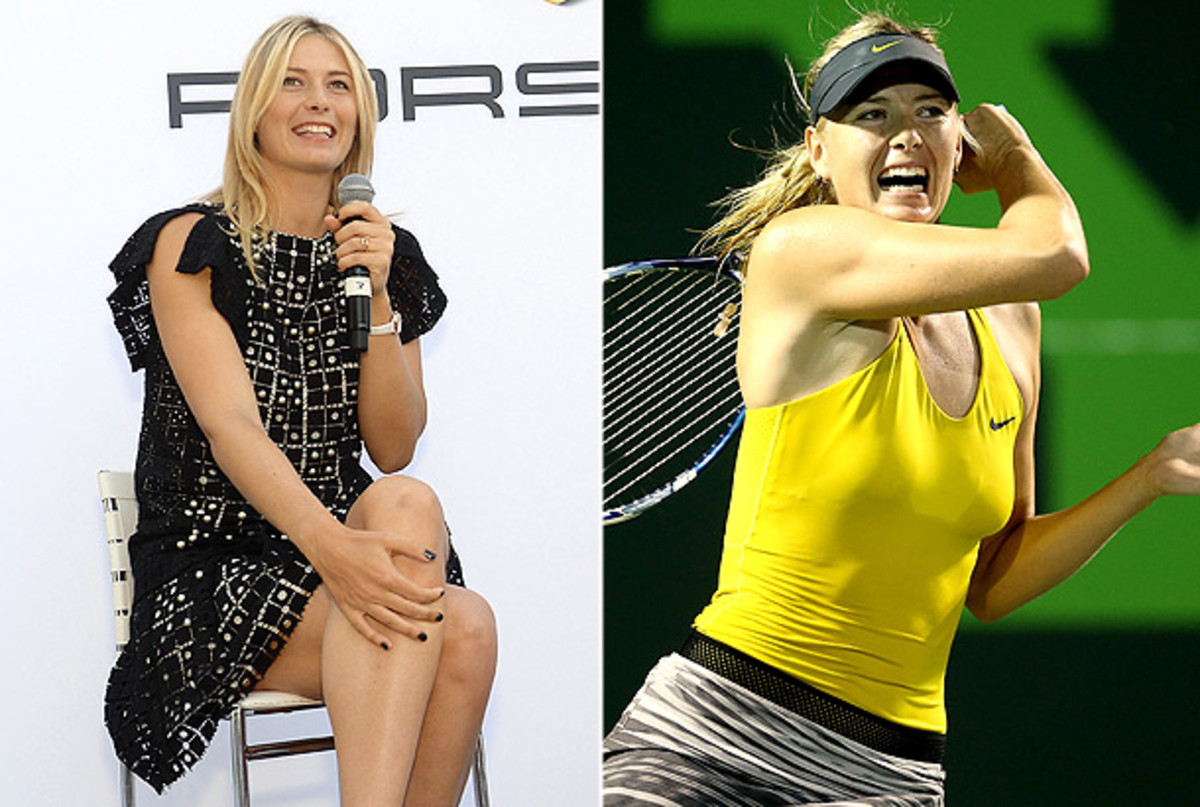Maria Sharapova cautions young WTA stars to ignore the hype
Maria Sharapova attends 'Porsche Media Night' (she's a Porsche brand ambassador) before the start of the Sony Open in Miami. (Getty Images)
Maria Sharapova knows a thing or two about the trappings of fame. Since winning Wimbledon as a 17-year-old in 2004, Sharapova has become a marketing juggernaut. She has been the highest paid female athlete every year since she won Wimbledon, according to Forbes. She's a regular at New York Fashion Week and owns her own company, and her high-profile, high-end global brands brought her $23 million in endorsements last year.
But the four-time Grand Slam champion and former No. 1 says all the off-court perks are completely ancillary to her ambitions. She wants to be the best on the court, not necessarily off of it, and that means having to make sacrifices.
NGUYEN: Would Maria Sharapova rather be considered pretty or tough? More quotes from Sony Open
"I think as players we want to be known for our strength on the court, because at the beginning of our careers that's what we started off as," Sharapova told reporters at the Sony Open. "We didn't start off with modeling agencies. We started off grinding on walls or in tough circumstances and tough situations where we had to grind out and become top professional players.
"We didn't start in a promotional advertisement modeling world. That was never our job. There are a lot of people that can take care of those things. Our focus has always been the game and the opportunities that we are able to create with the game that we produce and the results that we produce."
Now, a new generation of WTA youngsters with big games and glamorous marketing potential, like Eugenie Bouchard and Sloane Stephens, are starting to make waves; but times have changed, and Sharapova says their experiences of navigating the world of tennis and fame is different from when she was a teenager. She points to social media in particular as completely changing how young athletes see themselves. Social media can amplify the negativity, but it can also amplify the hype.
"You're always around opinions," Sharapova said. "No matter who you are, how great you are, there are always going to be those that don't have nice things to say. And probably as a younger player, someone that's just coming up, that's always challenging to take in the beginning of your career.
"Now when you see that shift of teenagers doing extremely well, pushing at Grand Slams at an earlier age, the hype I think is a lot bigger than maybe many years ago because you don't see that so often. And that adds another level of pressure. All of a sudden you're photographed by Vogue or you're talked about. It can become difficult."
Stephens can relate. She described her 2013 breakout season as "tough," and she echoed Sharapova when asked whether she had any advice to offer Bouchard on how to handle the escalating attention. Learn how to say no.
"Definitely when you have outside distractions it's a little bit tough," Stephens said in Indian Wells. "You want to do everything and say yes to everything. I'm sure she will find quickly that's not the way to go."
For Sharapova the tennis always came first and she credits her strong support team -- her family, coaches and agent -- for keeping her feet on the ground and always reminding her that the reason she picked up a racket in the first place was to play tennis.
"I learned a lot through that process, because it's so easy to do well and think you're on top of the world," she said. "You get kicked in the bottom really fast once you believe that you're on top of everything."






